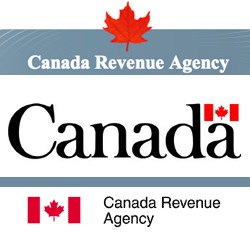Hundreds of Canadian self-storage facilities and campgrounds are receiving massive bills from the Canada Revenue Agency (CRA), because they don’t have the required number of employees to qualify for the small business tax rate. The Canadian Federation of Independent Business (CFIB) wrote a letter to CRA and the Department of Finance, this week to denounce the heavy penalties on businesses as a result.
CRA rules are unfair to smallest of businesses
“CRA is punishing these hard-working, middle-class small business owners by taxing them at triple the rate of other small businesses – rates higher than even the largest corporations,” said Dan Kelly, CFIB president. “With penalties and interest, these back tax bills are often in the tens of thousands of dollars, crippling otherwise healthy businesses, and leading to ruin for others.”
Kelly will raise the issue and ask for clarity around the CRA’s passive vs. active income rules in his presentation to the Standing Committee on Finance later this morning. Passive income businesses are not eligible for the small business tax rate.
Storage facility forced to shut down
“I’ll never forget the day my accountant told me that the CRA ruled my family business was a passive business and didn’t qualify for the small business tax rate,” said David Claeys, who was forced to shut down his self-storage company, R-Xtra Storage Centre Ltd., after the CRA ruling. “We couldn’t survive that level of taxation, even with everything we had saved for tough times. The ruling still doesn’t make sense to me. I worked 60-70 hours per week operating my business, and now it’s gone. I don’t want another family to ever have to go through what this decision has put my family through.”
Campgrounds at a crucial time of year
“Campgrounds are active, labour-intensive recreational businesses that provide an affordable vacationing option for Canadian families and international visitors,” said Alexandra Anderson, Executive Director of Camping in Ontario. “These recent CRA assessments not only put these small, mostly family-owned businesses at risk, but also sends a terrible signal to the entire industry just days before the 2016 camping season is about to begin.”
New review needed
The 2016 budget abruptly concluded a promised review of these tax rules and the industry is now caught in a bureaucratic tangle between the CRA and the Department of Finance. CFIB has advocated that so-called “passive” income rules are being misapplied to these industries, when the amount of work involved in running a campground or self-storage business is anything but passive.
“Requiring five staff to qualify for the small business rate is deeply insulting to the entrepreneurs who are often a part of the daily operations of their businesses. It’s called the small business tax rate. Being too small should not be a reason to exclude anyone,” added Kelly.
CFIB has urged the government to set-aside these audits until the unclear and unfair application of these rules can be resolved.



